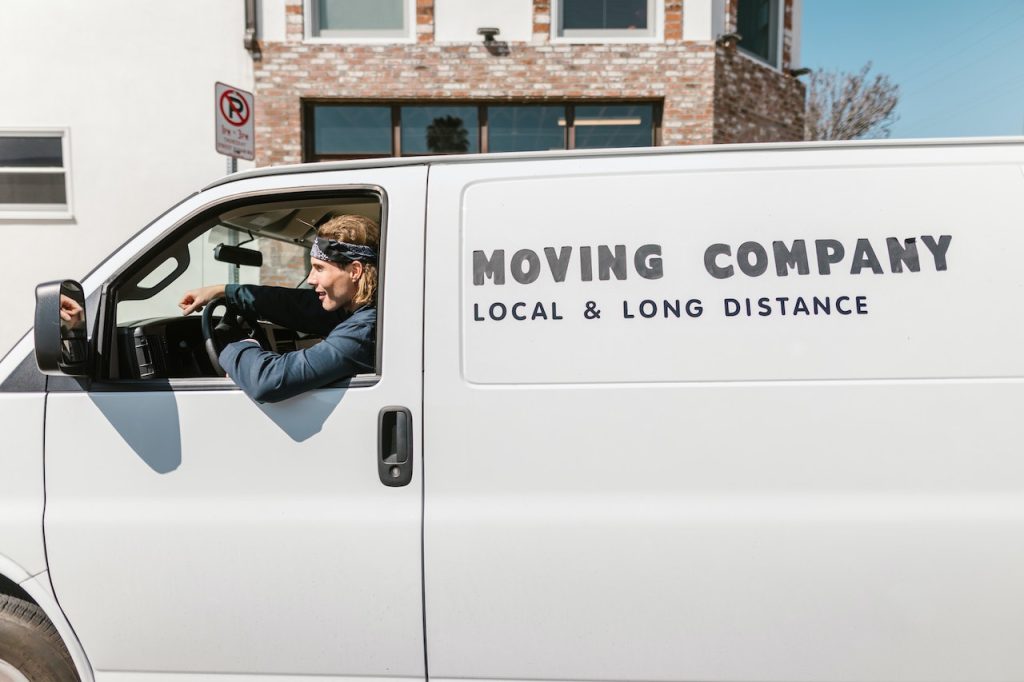
Moving can be both an exciting and stressful experience. Whether you’re moving within your neighborhood, across the state, or to a completely different part of the country, understanding the differences between local, intrastate, and interstate moving is essential. Today we’ll be focusing on the specific regulations and requirements that apply to moving within the beautiful state of Virginia. So, let’s dive in and unravel the complexities of local, intrastate, and interstate moving!
Table of Contents
What is Local Moving?

Let’s start with the most common type of move: local moving. Local moves typically involve relocating within the same city or town, or within a short distance from your current location. In Virginia, a local move is generally defined as a move within a 50-mile radius. However, this distance may vary depending on the specific regulations imposed by local authorities.
When it comes to local moving, there are a few key aspects to consider:
- Flexibility and Control: Local moves offer a greater degree of flexibility and control since you’re moving within a relatively short distance. You can plan your move with more precision and make adjustments as needed.
- Cost: Local moves are usually less expensive compared to intrastate or interstate moves. Since the distance is shorter, the moving company’s charges are primarily based on the number of hours and movers required.
- Licensing and Insurance: While there are no specific state-level licenses for local movers in Virginia, it is essential to choose a reputable and insured moving company. This ensures that your belongings are protected in case of any unforeseen circumstances.
What is Intrastate Moving?
Moving beyond the local boundaries but remaining within the state of Virginia is considered an intrastate move. This type of move involves crossing county lines or moving to a different part of the state, but not leaving Virginia altogether.
When planning an intrastate move in Virginia, here are a few key factors to keep in mind:
Regulations and Licensing: Intrastate moves in Virginia fall under the jurisdiction of the Virginia Department of Motor Vehicles (DMV). Moving companies engaged in intrastate moves must be registered with the DMV and possess a valid Virginia Household Goods Carrier Certificate.
Cost and Distance: Intrastate moves are generally priced based on the distance between the origin and destination, as well as the weight of your belongings. The charges may also include additional fees for tolls or any other specific services requested.
Insurance: As with any move, it is crucial to ensure that your moving company has adequate insurance coverage to protect your possessions during the intrastate journey.
What is Interstate Moving?
Interstate moves involve crossing state lines and relocating to a different state. If you’re planning to move from Virginia to another state or vice versa, it’s important to understand the specific regulations and requirements that apply.
Here are some key considerations for interstate moves in Virginia:
Federal Regulations: Interstate moves are governed by federal regulations issued by the Federal Motor Carrier Safety Administration (FMCSA). These regulations apply to all moving companies engaged in interstate moves, ensuring consistent standards and practices.
Licensing and Insurance: Interstate moving companies must have a valid USDOT (United States Department of Transportation) number, which serves as their license to operate. Additionally, they are required to provide valuation coverage options to protect your belongings during transit.
Pricing and Estimates: Interstate moving costs are typically calculated based on the weight of your shipment, the distance traveled, and any additional services you require. It is recommended to obtain multiple estimates from licensed and reputable moving companies to ensure you get the best value for your money.
Local Vs. Intrastate Vs. Interstate Moving: Choosing the Right Path for Your Move

Moving can be a significant undertaking, and understanding the differences between local, intrastate, and interstate moving is crucial in making the right decision for your specific needs. Each type of move comes with its own set of considerations, regulations, and requirements. Let’s compare the key aspects of local, interstate, and intrastate moving to help you navigate the choices and embark on a successful move.
1. Distance:
– Local Moving: Local moves typically involve relocating within the same city or town or within a short distance, usually around 50 miles. This type of move is ideal if you want to stay close to your current location and maintain familiarity with your surroundings.
– Intrastate Moving: Intrastate moves go beyond the local boundaries but remain within the same state. They involve crossing county lines or moving to a different part of the state, but not leaving the state altogether. Intrastate moves are suitable for those who wish to explore new areas within their home state.
– Interstate Moving: An Interstate move, on the other hand, involve crossing state lines and relocating to a different state. If you’re ready for a bigger change and want to experience life in a new state, an interstate move is the right choice for you.
2. Regulations and Licensing:
– Local Moving: Local moves generally have fewer regulations and licensing requirements compared to intrastate and interstate moves. While there may not be specific state-level licenses for local movers, it is crucial to select a reputable moving company that is insured to protect your belongings.
– Intrastate Moving: Intrastate moves within Virginia fall under the jurisdiction of the Virginia Department of Motor Vehicles (DMV). Moving companies engaged in intrastate moves must be registered with the DMV and possess a valid Virginia Household Goods Carrier Certificate. These regulations ensure that you’re working with professional movers who meet the necessary standards.
– Interstate Moving: Interstate moves are subject to federal regulations issued by the Federal Motor Carrier Safety Administration (FMCSA). An interstate moving company must have a valid USDOT number, which serves as their license to operate. This requirement ensures that you’re entrusting your move to a licensed and regulated company that meets federal safety standards.
3. Cost:
– Local Moving: Local moves are generally more cost-effective compared to intrastate and interstate moves. Since the distance is shorter, the charges are primarily based on the number of hours and movers required for the job.
– Intrastate Moving: Intrastate moves are priced based on the distance between the origin and destination, as well as the weight of your belongings. Additional fees may apply for tolls or specific services requested.
– Interstate Moving: Interstate moves are typically calculated based on the weight of your shipment, the distance traveled, and any additional services required. Obtaining estimates from multiple reputable moving companies will help you compare prices and find the best value for your budget.
4. Insurance and Liability:
– Local Moving: While there may not be specific insurance requirements for local moves, it is still important to choose a local moving company that offers liability coverage and takes responsibility for any damages that may occur during the move.
– Intrastate Moving: Moving companies engaged in intrastate moves are required to have insurance coverage to protect your belongings during transit. This ensures that your possessions are safeguarded in case of any unexpected incidents.
– Interstate Moving: Interstate moving companies must provide valuation coverage options to protect your belongings during transit. This offers additional peace of mind, knowing that your possessions are insured throughout the long distance move.
66Movers: Your Trusted Partner for Local, Intrastate, and Interstate Moves In Virginia

At 66Movers, we pride ourselves on being your go-to moving experts for all your relocation needs, whether you’re moving locally, intrastate, or interstate within Virginia. With years of experience and a team of skilled professionals, we have established ourselves as a trusted name in the moving industry.
When it comes to local moves, we understand the importance of a seamless transition. Our team is well-versed in navigating the streets and neighborhoods of Virginia, ensuring that your belongings reach their destination safely and efficiently. With our attention to detail and personalized approach, we make your local move a stress-free experience.
If you’re looking for intrastate movers within Virginia, look no further than 66Movers. We have extensive knowledge of the state’s regulations and licensing requirements, ensuring that your move complies with all necessary guidelines. Our experienced team will handle every aspect of your intrastate move, from packing and loading to transportation and unloading, giving you peace of mind throughout the process.
Our team is well-versed in the federal regulations governing interstate moves, ensuring that your relocation is conducted in compliance with all necessary guidelines. From handling logistics to providing insurance coverage, we take care of the details so that you can focus on starting your new chapter in a different state. Our team of interstate movers will work closely with you to create a customized moving plan that suits your timeline, budget, and preferences. From packing fragile items with care to providing storage solutions, we pay attention to every detail to make your move a seamless and hassle-free experience.
We take pride in providing exceptional moving services and going above and beyond to exceed your expectations. Our team is dedicated to delivering a smooth and stress-free moving experience, ensuring that you feel confident and satisfied throughout the process.
Conclusion
Moving can be a complex process, especially when it comes to understanding the differences between local, intrastate, and interstate moving. By grasping the specific regulations and requirements involved in each type of move, you’ll be better prepared to navigate the maze of relocating within Virginia.
Remember to do your due diligence when selecting a moving company. Choose a reputable company with the necessary licenses and insurance coverage to protect your prized possessions. Whether you’re moving down the street, across the state, or beyond Virginia’s borders, a well-informed decision will help ensure a smooth and successful moving experience.
When it comes to local, intrastate, and interstate moving in Virginia, 66Movers is your trusted partner. With our expertise, personalized approach, and commitment to customer satisfaction, we make your move a seamless and enjoyable experience. Whether you’re moving down the street or across state lines, choose 66Movers for a reliable and professional moving service that you can count on. Contact us today for a smooth and stress-free relocation.
FAQs
In Virginia, a local move typically refers to a relocation within the same city or town, or within a short distance, usually around 50 miles. It involves moving your belongings to a new residence nearby while staying within your local community.
Intrastate moving refers to relocating within the same state. It involves crossing county lines or moving to a different part of the state without leaving the state’s boundaries. On the other hand, interstate moving involves crossing state lines and moving to a different state.
Yes, intrastate moving in Virginia is regulated by the Virginia Department of Motor Vehicles (DMV). Moving companies engaged in intrastate moves must be registered with the DMV and possess a valid Virginia Household Goods Carrier Certificate.